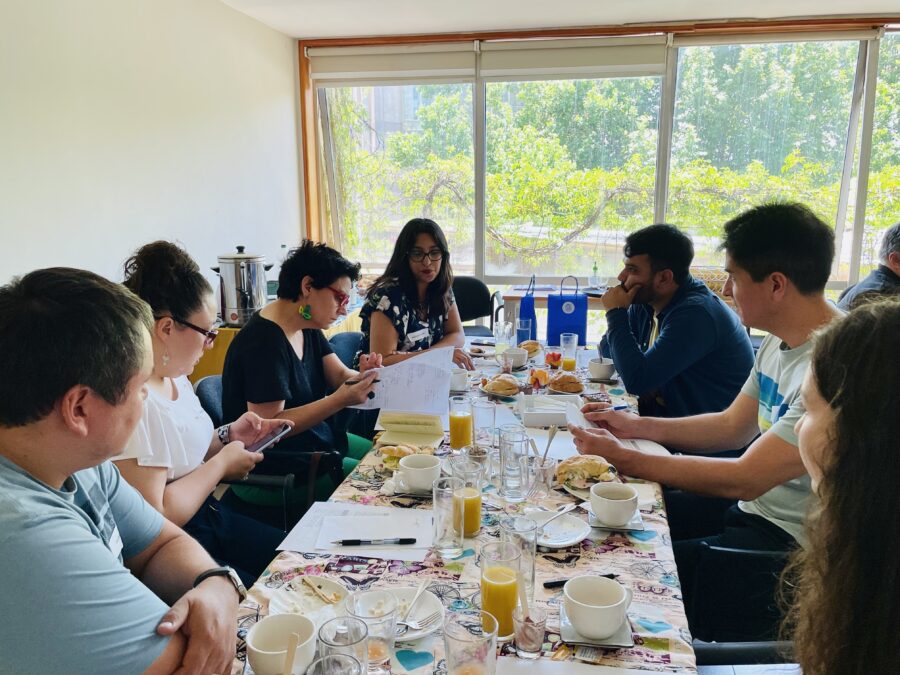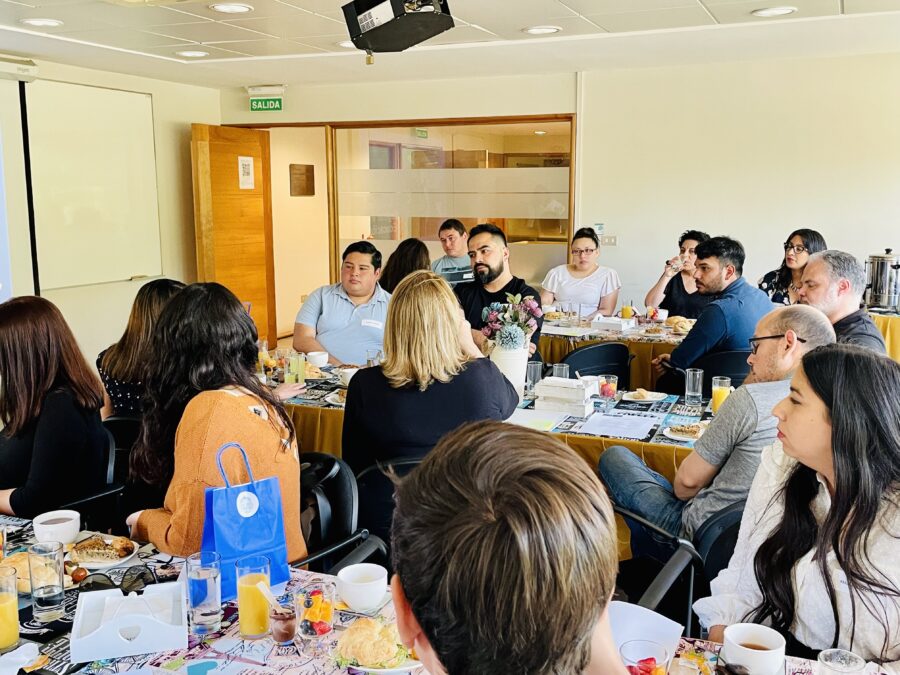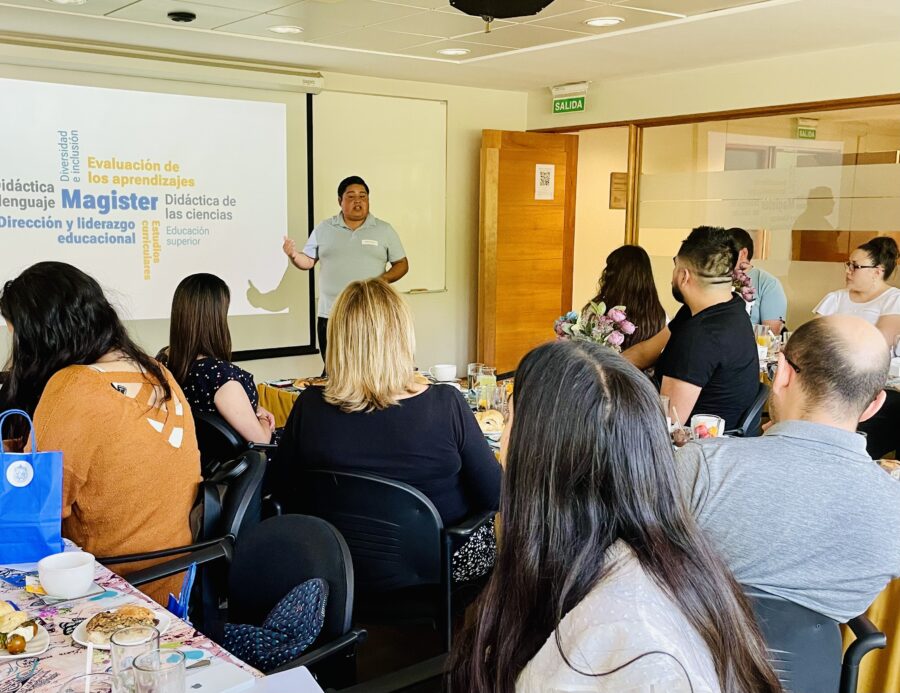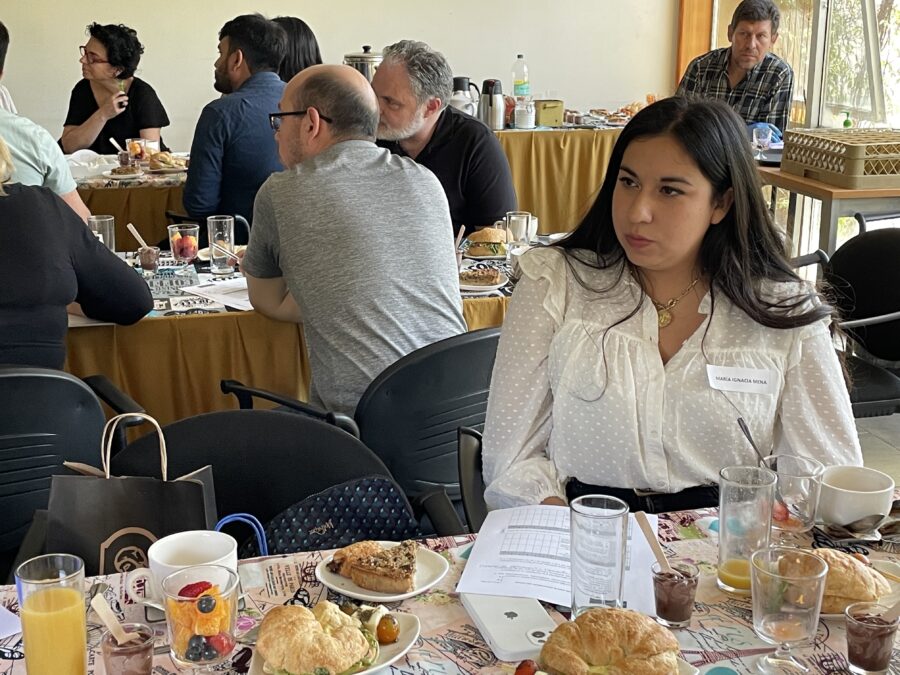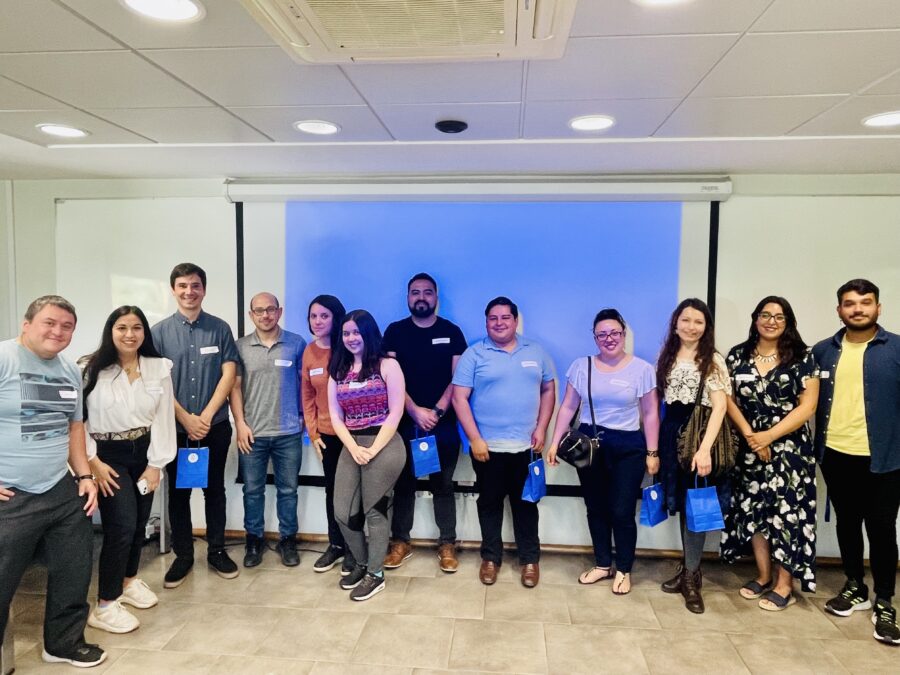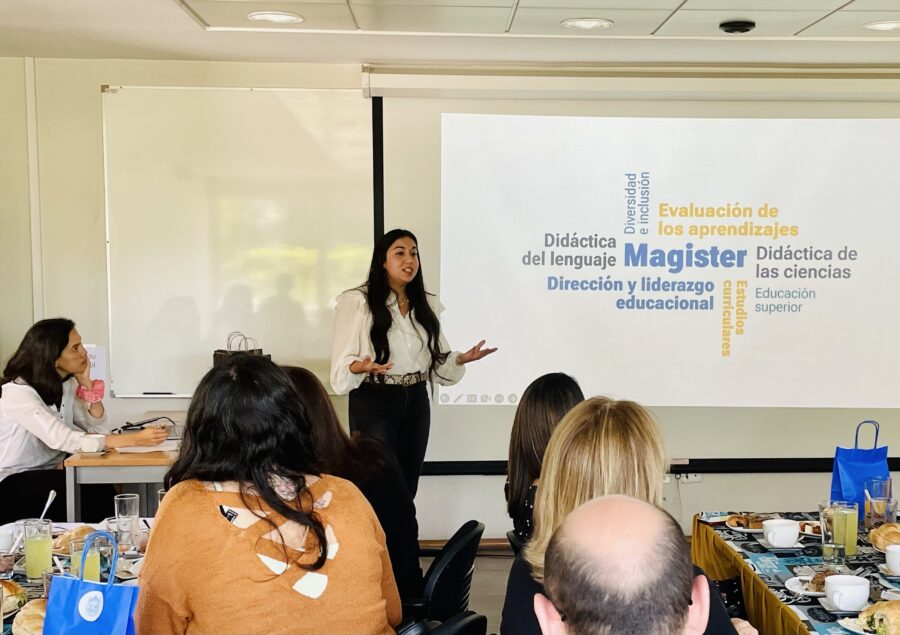Generations 2018-2022 of Master's in Education meet in the first meeting of graduates
November 19, 2022
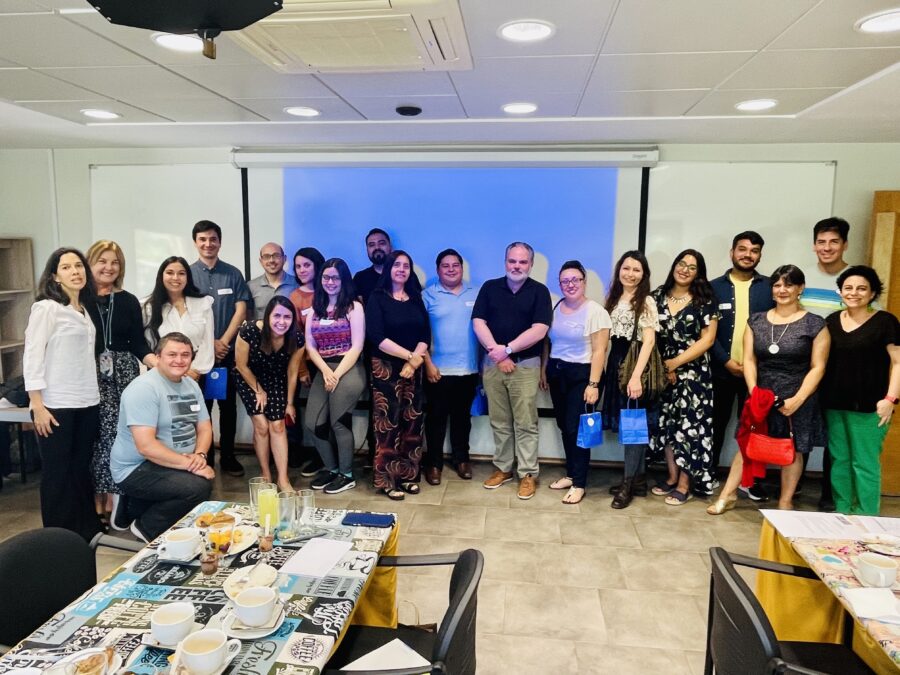
Twenty-one people between academics and graduates participated in the meeting, who spoke about their research projects and different innovative practices.
On November 19, in the Mabel Condemarín Hall of the Faculty of Education for the Universidad Católica, a graduate breakfast was held of the Master of Education of our faculty, which was also attended by different academics.
This breakfast is the first activity that brings together the 2018-2022 generations of the master. At the meeting, the students and graduates presented their innovative practices and their research projects, which seek to publicize research areas and opportunities for the development of new projects to which the different graduates can be linked.
“This first meeting of graduates has allowed the Master of Education program to delve into building a community that transcends the duration of the program. It allowed us to meet again and reflect on how to continue collaborating in the future”, he mentioned Veronica Santelices, head of the Master's Program.
Those in charge of exposing their research projects were the graduates Helena Montenegro, academic from the Catholic University; Daniela Véliz, Director of Research at the Faculty of Education and Magdalena Claro, associate professor of the faculty and director of the Center for the Study of Policies and Practices in Education UC. The three, in turn, are academics of the Master's Program in Education. graduates Claudio Salgado y Maria Ignacia MenaFor their part, they presented their innovative practices.
Innovation as one of the central axes
The professional emphasis of the program allows graduates design innovative proposals to renew and strengthen educational processes, and implement interdisciplinary collaborations to solve problems and achieve shared educational goals.
A clear example of this was the exhibition made by graduate María Ignacia Mena. Due to the loss of learning due to the effects of the Covid-19 pandemic -explained the professional-, she designed a improvement project for the recovery of reading-writing learning in first grade from a private subsidized school. This project was carried out in collaboration with the Center for the Development of Inclusion Technologies (CEDETI UC), where a video game called Graphogame was used, which allows leveling the decoding processes of boys and girls.
In addition, the project involved work with the teachers and leaders of the organization, with a focus on the minors learning to read in a short period of time. Of 70 students, 20% managed to improve their reading level at the end of the study, which was valued by the teachers who participated, who highlighted the initiative for its collaborative nature and for the intentional spaces for pedagogical reflection.
Claudio Salgado, for his part, spoke about the possibility of incorporate into middle leadership practices the use of data for decision-making, generating opportunities for improvement in the elaboration of the establishment's own measurement instruments, with anchor questions to evaluate the progress of the students.
He also highlighted the development of a satisfaction survey - requested by the school coexistence team - addressed to fathers, mothers and guardians that allows evaluate the areas of institutional leadership of the management team, the management in the socio-emotional area of the different teams of the establishment, the academic management and the relationship of the staff with the students.
All this information has been used in conjunction with analysis and decision making based on the results of the evaluations of the Socio-emotional Comprehensive Diagnosis of Learning for continuous improvement, which has contributed to the recognition of an institutional practice (school assembly) as good leadership practice in Professional Technical Secondary Education by CILED – UDD y Mineduc.
